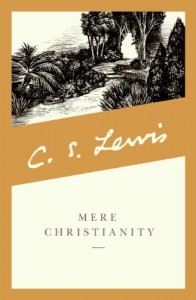 On November 22nd, 1963, John F. Kennedy was assassinated. On that same day, Alduos Huxley and C.S. Lewis breathed their last as well, but the media storm created by a presidential assassination all but obscured the deaths of these great men. On the fiftieth anniversary of his death, Lewis’ life and work are being commemorated by the erection of a plaque in Westminster Abbey’s Poet’s Corner, where he will join the likes of Chaucer, Shakespeare, Milton and Dickens – esteemed company, indeed. Clive Staples Lewis is perhaps the modern era’s most famous Christian apologist. His children’s fantasy series The Chronicles of Narnia, thinly veiled Christian parable, remains deservingly beloved, having endured Hollywood’s best efforts to strip it of its charm, and his belated conversion to Christianity occasioned an outpouring of religious writing that has inspired believers and skeptics alike.
On November 22nd, 1963, John F. Kennedy was assassinated. On that same day, Alduos Huxley and C.S. Lewis breathed their last as well, but the media storm created by a presidential assassination all but obscured the deaths of these great men. On the fiftieth anniversary of his death, Lewis’ life and work are being commemorated by the erection of a plaque in Westminster Abbey’s Poet’s Corner, where he will join the likes of Chaucer, Shakespeare, Milton and Dickens – esteemed company, indeed. Clive Staples Lewis is perhaps the modern era’s most famous Christian apologist. His children’s fantasy series The Chronicles of Narnia, thinly veiled Christian parable, remains deservingly beloved, having endured Hollywood’s best efforts to strip it of its charm, and his belated conversion to Christianity occasioned an outpouring of religious writing that has inspired believers and skeptics alike.
Mere Christianity is Lewis’ distillation of what he views as the basic tenets of Christian theology, aimed to inform a layman or sway a skeptic, and I like to think he could find no greater challenge in the latter category than me, a lifelong atheist. To this end, he marshals an eminently reasonable mind – a difficult, perhaps even paradoxical thing to say about an ardent believer – and an easy-going, familiar prose style that belies his ferocious intelligence (in fact, whole sections of Mere Christianity are adapted from a series of radio broadcasts he gave, no doubt adding to the colloquial tone). The book itself is subdivided into four smaller “books,” with headings like “What Christians Believe” and “Christian Behavior,” roughly organized according to how far they strain credulity – thus the first section merely asks us to accept that there is a moral order to the universe, whereas the final few deal with specifics of Christian theology, including the three-person god.
There is nothing here to convince an unbeliever; that is to say, refreshing as it is to encounter a Christian apologist who does not reduce Christ to a “great moral teacher,” Lewis makes no attempt to engage with famous skeptics like David Hume, Robert Ingersoll or Bertrand Russell. He nonetheless manages to present a vision of a moral life that, with a few notable exceptions, is unobjectionable, even laudable. He is not free from the kind of headache-inducing illogic of his peers, nor can he escape defending some of Christianity’s more problematic elements, but these come with the territory, and unlike so many who profess devotion, he does not dodge their existence or minimize their implications.